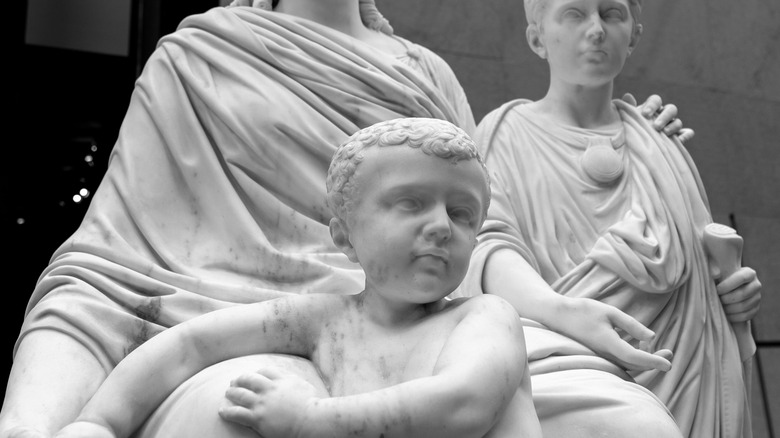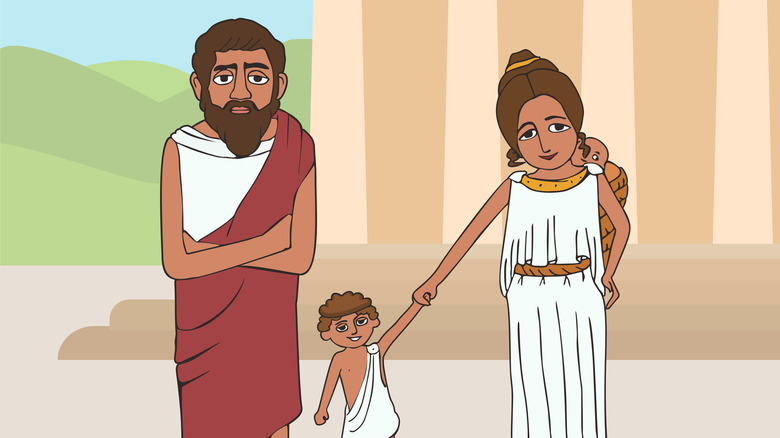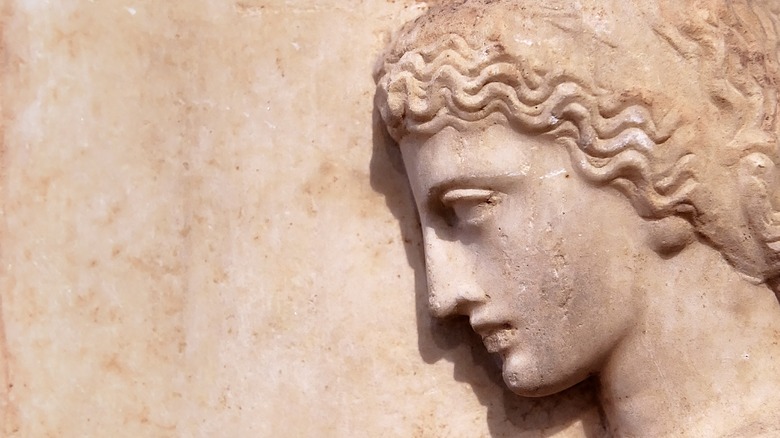DNA Research Reveals A Strange Truth About Families In Ancient Greece
In casual discussions of the potential of time travel, a lot of us reveal our mischievous sides. We make silly suggestions like handing our cell phones to a Medieval peasant and attempting to explain the infinite scope of the Internet to them. What would they think if they saw a television, a games console, a shower, or any number of the contemporary creature comforts we take for granted? Well, without time-traveling jokers messing with them, we'll never know.
Silliness aside, though, today's science allows us to look into the past to an extent that people of the time could never have imagined. We can glean great insight not only about the rulers, nobles and famous of their day, but of the ordinary families, of the workers whose toil really kept the world moving.
One era that continues to capture history enthusiasts' imagination is that of ancient Greece. It was a time and place of philosophy, of great inventiveness, and of fearsome warriors. The city-state of Sparta, per History, trained boys to be formidable and fearless fighters from an early age, with brutal 'training' consisting of being forced to endure extreme weather and extreme discipline. As Plutarch put it, according to the outlet, "their boyish training was a practice of obedience."
What of ancient Greek families in general terms? Well, new DNA studies have discovered something surprising about the marriages of the time.
Greece divided, Greece united
According to the CIA's World Factbook, Greece, as we know it today, was born in 1830, when it achieved independence from the Ottomans. From there, local regions joined under the umbrella of Greece. The ancient history of the Greek city-states, however, is marked by squabbling and in-fighting.
For instance, the two biggest powerhouses of them, Athens and Sparta, clashed in the Peloponnesian War of 431 to 404 BCE, according to Britannica. The conflict was ultimately disastrous for Athens, Britannica goes on, following their final defeat at the battle of Aegospotami, but it all underscores what a formidable force the Greek city-states could have been if they had united and remained so.
There were, however, fundamental differences between the city-states. Per National Geographic, Athens flourished as a naval power, while Sparta prioritized its legendary land forces. Systems of government and priorities of the government were different, and single political powerhouses arising were considered a threat to all. As a result, differences of opinion, perceived threats, and attempts to stifle them all left these disparate states at each others' throats.
There was no one Greece, but multiple Greek powers. The differences between them and the people that lived in them were many and profound. In some areas of ancient Greece, it seems, first cousins commonly married each other.
An anomalous choice of spouse
In January 2023, Leipzig's Max Planck Institute for Evolutionary Anthropology embarked on a fascinating study, the likes of which had never been conducted before. The outlet reported that advancements in the field of DNA research (and specifically the way that results are collected and analyzed) allowed for the creation of the very first ancient Mediterranean family tree. The focus of the study was on a "Mycenaean hamlet of the 16th century BC." More specifically, it was on those who had lived there, from those who had been buried together, and this family proved very interesting indeed.
The study, "Ancient DNA reveals admixture history and endogamy in the prehistoric Aegean," was published by Eirini Skourtanioti et al in Nature Ecology & Evolution. The researchers explained that they had "generated new genome-wide data from 102 prehistoric individuals from Aegean Neolithic, as well as Iron Age contexts," reportedly four times as many pieces of evidence as had been studied in previous projects.
Cross-referencing genome patterns and chromosomal similarities, and adding the fact that distant relatives were seemingly buried together frequently, the conclusion was that the case study seemed to indicate that the groups studied "formed a small endogamous community that regularly practiced first-cousin intermarriages."
Why marry a first cousin?
The evidence suggests, according to CNN, that across Mycenaean Greece and Crete, one-third to one-half of people in the region embarked on such a marriage. One of the researchers, Professor Philipp Stockhammer, explained to the outlet why this may have been the case. "In Greece, there's not much space to grow things, and things that you plant need decades to grow ... If you marry in your family it means that you focus on staying in the same area."
According to Stockhammer, then, keeping it in the family enabled people to ... keep it in the family, in terms of maintaining lucrative and crucial crops of things like grapes. The archeologist stated that this is contrary to other findings of the period from elsewhere on the continent: "People have studied thousands of ancestral genomes and there's hardly any evidence for societies in the past of cousin-cousin marriage."
With this ground-breaking new information in mind, the history of our ancestors, both in Europe and beyond, can be studied in a new light. Our history is truly an intriguing gift that keeps on giving, even for those who know our past the best.



